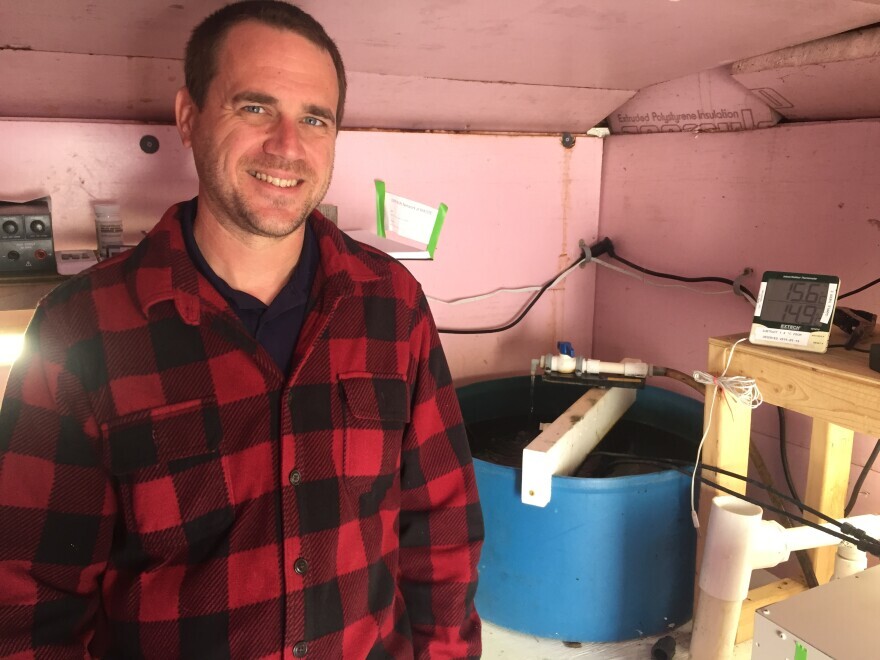Tech tested on Cape Cod could track backyard septic-system pollution

Brian Baumgaertel, director of the Massachusetts Alternative Septic System Test Center, stands near a blue wastewater tank used to test nitrogen-monitoring sensors like the one contained in a metal box, at right foreground. (Jennette Barnes/CAI)
Nitrogen from septic systems has been disrupting local waterways for years, causing fish kills and blooms of toxic algae. Now, field testing on Cape Cod is playing a national role in the development of technology to monitor nitrogen — even in individual backyards — as a step toward keeping the excess out of our waters.
“There must be at least 30 septic tanks in the ground here — dozens of leachfields,” says Brian Baumgaertel, showing a visitor around the Massachusetts Alternative Septic System Test Center, where he is the director.
When an innovation in septic systems comes along, chances are, the technology has to prove itself at this facility, run by Barnstable County at the southern end of Joint Base Cape Cod.
The unassuming property has a few office trailers alongside a field dotted with septic covers and sheds. Percolating around every corner here is another science experiment.
“We use, like, anything we can here, in terms of where we put stuff,” Baumgaertel says as he steps into a small trailer to show off one of his latest projects: testing nitrogen sensors for a product-development contest sponsored by the U.S. Environmental Protection Agency.
A few years ago, the EPA launched a contest for the best low-cost sensor to monitor nitrogen from septic systems and automatically transmit the data.
Baumgartel’s team tested the prototypes.
For the rest of this story, please visit WCAI’s website Capeandislands.org.
